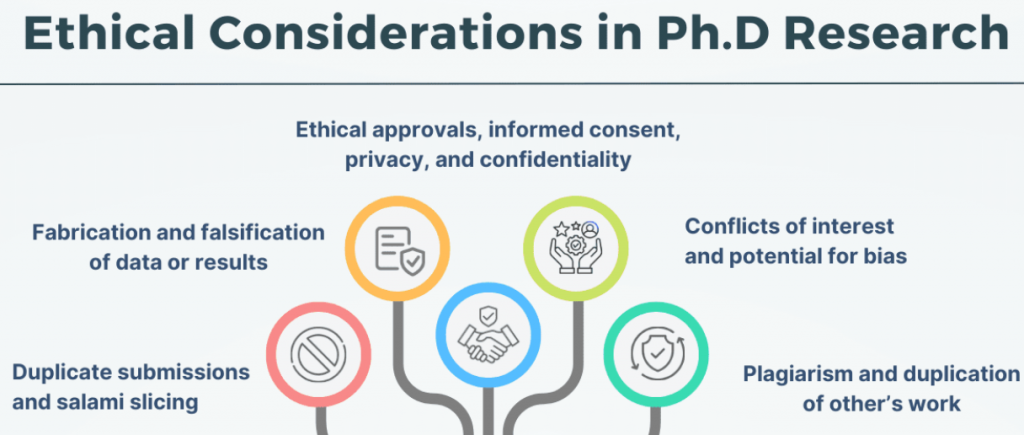The dissertation methodology chapter is the backbone of your research. It’s where you clearly articulate how you will answer your research questions and achieve your objectives. A well-written dissertation methodology chapter serves as a roadmap for your research. It provides clarity and transparency to your readers, and ultimately contributes to the credibility of your findings. This chapter is often the most challenging to write, but with careful planning and a structured approach, you can craft a stellar dissertation methodology chapter that sets your research apart.
The Purpose of the Dissertation Methodology Chapter
The dissertation methodology chapter is not merely a checklist of research methods used. It explains why you chose those specific methods and how they relate to your research questions. It also shows how they will allow you to gather and analyze data effectively. The methodology chapter, therefore, has three primary goals:
- Explain your research design: Clearly describe the overall approach you are using to conduct your research. This includes the research paradigm (e.g., quantitative, qualitative, mixed methods) and the specific design within that paradigm (e.g., experimental, case study, survey).
- Justify your chosen methods: Explain why the methods you’ve selected are appropriate for answering your research questions and achieving your objectives. This involves discussing the strengths and limitations of your chosen methods and addressing any potential biases or challenges.
- Provide a detailed account of the implementation of your methods: This section should provide specific details about your data collection procedures, sampling techniques, data analysis methods, and any ethical considerations involved in your research.
How to Structure the Dissertation Methodology Chapter
A clear and logical structure is essential for a compelling dissertation methodology chapter. While the specific sections may vary depending on your research design, a common structure includes:
- Introduction: Start with a brief overview of your research and the overall research design. Briefly restate your research questions and objectives, and provide context for the methodology chapter.
- Research Paradigm and Design: Describe the overarching research paradigm (e.g., quantitative, qualitative, mixed methods) you are employing and explain why it is appropriate for your study. Detail the specific research design within this paradigm (e.g., experimental, case study, survey) and justify its suitability for your research objectives.
- Population and Sampling: Define the population of interest for your study and describe the sampling technique used (e.g., random sampling, purposive sampling). Explain why this particular sampling strategy is appropriate for your research and discuss any potential limitations of the sampling method.
- Data Collection Methods: Describe the specific methods you are using to collect data (e.g., questionnaires, interviews, experiments, observation). For each method, provide a detailed explanation of how it will be implemented, including the instruments used, data collection procedures, and any ethical considerations.
- Data Analysis Methods: Explain how you will analyze the data collected. This section should include a detailed description of the statistical methods or qualitative analysis techniques (e.g., thematic analysis, grounded theory) you will use to analyze your data.
- Ethical Considerations: Discuss any ethical implications of your research, including informed consent, data privacy, and potential risks or benefits to participants. Ensure that you have obtained all necessary ethical approvals and followed relevant ethical guidelines.
- Limitations: Acknowledge any potential limitations of your study, including any methodological constraints, sample bias, or potential threats to validity. Be upfront about these limitations and discuss how they might influence your findings.
- Conclusion: Briefly summarize the key points of your dissertation methodology chapter and emphasize how the chosen methods will effectively address your research questions and contribute to the overall validity of your study.
Essential Guidelines for Proper Writing Style and Tone
The dissertation methodology chapter should be written in a clear, concise, and objective style. Avoid jargon and technical terms that your readers might not understand. Instead, use plain language to explain your research methods and ensure that your writing is accessible to a wider audience.

Provide Specific Details:
The dissertation methodology chapter should be a detailed account of your research methods. Avoid vague statements or generalizations. Provide specific details about your data collection procedures, sampling techniques, data analysis methods, and any ethical considerations involved in your research.
Be Critical and Reflective:
A strong dissertation methodology chapter is not just a description of your methods. It should also be a critical reflection on the strengths and limitations of those methods. Acknowledge any potential biases or challenges associated with your chosen approach and discuss how these limitations might affect your findings.
Connect your Dissertation Methodology Chapter to Other Chapters:
Your dissertation methodology chapter should clearly connect to other chapters in your dissertation, particularly the literature review and the findings chapters. The literature review should provide context for your chosen methods, justifying their use in relation to existing research. The findings chapter should directly relate to the data collected and analyzed using the methods described in the dissertation methodology chapter.
Cite Relevant Literature:
Throughout the dissertation methodology chapter, you should cite relevant literature to support your choices of methods and provide evidence for their appropriateness. Refer to established research in your field to demonstrate your understanding of the theoretical foundations of your methods and to strengthen the credibility of your chosen approach.
Seek Feedback and Revisions:
Before submitting your dissertation methodology chapter, seek feedback from your supervisor or other experts in your field. Get their input on the clarity, comprehensiveness, and coherence of your writing. Be open to revisions and suggestions to ensure that your methodology chapter is as strong as possible.
Illustrative Examples of Dissertation Methodology Chapters
Here are some illustrative examples of how the dissertation methodology chapter can be tailored to different research designs:
- Quantitative Study: For a quantitative study, the dissertation methodology chapter would likely include sections on the research design (e.g., experimental, correlational), data collection methods (e.g., surveys, experiments), data analysis methods (e.g., statistical tests), and ethical considerations.
- Qualitative Study: For a qualitative study, the methodology chapter might include sections on the research design (e.g., case study, ethnography), data collection methods (e.g., interviews, focus groups, observation), data analysis methods (e.g., thematic analysis, grounded theory), and ethical considerations.
- Mixed Methods Study: For a mixed methods study, the dissertation methodology chapter would integrate elements of both quantitative and qualitative approaches. It would describe the rationale for combining these methods, explain how the quantitative and qualitative data will be collected and analyzed, and discuss the potential benefits and challenges of using a mixed methods approach.
Remember the Importance of Clarity and Transparency:
The primary goal of the dissertation methodology chapter is to provide a clear and transparent account of your research methods. Readers should be able to understand how you conducted your study, why you chose those specific methods, and how they relate to your research questions. By writing a stellar dissertation methodology chapter, you can significantly enhance the credibility of your research and ensure that your findings are robust and reliable.
The Common Pitfalls in Dissertation Methodology Chapter and How to Avoid Them
The dissertation methodology chapter is the heart of your research project, outlining the methods you’ll use to answer your research question. It’s a crucial chapter, often overlooked, that can make or break your dissertation. However, common mistakes can sabotage the entire process, resulting in a weak methodology and ultimately, a flawed dissertation.
1. Lack of Clarity and Focus: A well-written dissertation methodology chapter should be a clear and concise roadmap for your research. It should be tailored to your specific research question, providing sufficient detail about the chosen approach without being overly verbose. A common mistake is failing to establish a clear connection between your research question and the methods you’ll employ.
To avoid this mistake: Begin by outlining your research question and its significance. Then, explain why your chosen methodology is the best fit to answer this question. Clearly define the type of research (qualitative, quantitative, or mixed methods) and justify its suitability. This focus will ensure that your dissertation methodology chapter is grounded and serves a clear purpose.
2. Inadequate Justification of Methods: Simply stating that you’ll use a specific method is not enough. You need to provide a rationale for your choices, explaining why they are appropriate and how they contribute to your research.
To avoid this mistake: Thoroughly review relevant literature and highlight the existing research that supports your chosen methodology. Discuss the strengths and limitations of your chosen methods in relation to your research question. Remember, the dissertation methodology chapter isn’t just about describing your methods; it’s about convincing your reader that they are the best possible choice for your research.
3. Insufficient Details: A vague dissertation methodology chapter leaves your reader with unanswered questions. Provide enough details about your methods to allow for replication. This includes information about your sample size, data collection techniques, data analysis methods, and any ethical considerations.
To avoid this mistake: Be specific about your chosen tools and techniques. If you are using a specific questionnaire, provide details about its development and validation. If you are conducting interviews, explain your interview guide and the procedures for recruitment and data collection. This level of detail ensures transparency and allows readers to understand your research process thoroughly.
4. Neglecting Ethical Considerations: Dissertation methodology chapters should address ethical considerations related to your research. This includes participant consent, privacy protection, and data security.

To avoid this mistake: Clearly outline the ethical guidelines you adhered to throughout your research. Explain how you ensured participant confidentiality and informed consent. Address potential ethical issues specific to your chosen methods and outline the steps taken to mitigate these risks.
5. Lack of Planning and Organization: The dissertation methodology chapter should be well-structured and logical. A common mistake is failing to organize the chapter in a way that makes it easily understandable.
To avoid this mistake: Start with a clear introduction outlining the chapter’s purpose and structure. Use headings and subheadings to separate different sections and ensure a smooth flow of information. Finally, end with a concluding section that summarizes the key aspects of your methodology and its potential impact on your research findings.
The dissertation methodology chapter is not simply a technical section; it’s a vital element of your research project. By avoiding these common mistakes, you can ensure that your dissertation methodology chapter is clear, concise, and persuasive. This will strengthen the overall quality of your dissertation, providing a solid foundation for your research findings and successful defense. Remember, a strong methodology chapter is not only about explaining your research methods; it’s about justifying and defending them.
The Bottom Line
Writing a stellar methodology chapter is crucial for the success of your dissertation. It is a critical component of your research and should be approached with meticulous care and attention to detail. By following these guidelines, you can craft a clear, comprehensive, and compelling dissertation methodology chapter that provides a strong foundation for your research and sets your dissertation apart.
Remember: The dissertation methodology chapter is an essential element of your dissertation. By taking the time to carefully plan, structure, and write this chapter, you can ensure that your research is well-grounded, transparent, and credible.
Get Professional Dissertation Writing Service
At Exemplary Dissertations, we can help you to craft all the sections of your dissertation to the best standards for success. Our service covers topic suggestion, dissertation writing, proofreading, editing, formatting and plagiarism removal. We guarantee customized guidance and support to ensure an authentic and impactful dissertation. Besides dissertations, we also write essays, case studies and research papers.

